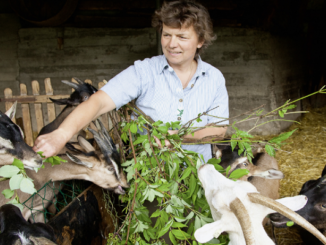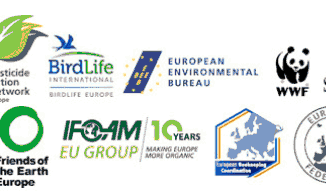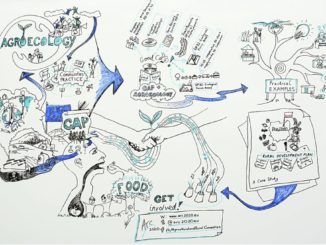MEPs on the Agriculture Committee – COMAGRI – have rejected a proposal by the EU Commission to ban pesticides from Ecological Focus Areas. The proposal was part of a simplification initiative by the EU Commission, whereby a bundle of 14 changes in CAP greening rules were put forward. Now, the Parliament itself must vote on the topic mid June. If the Parliament accepts the recommendation of COMAGRI, then the Commission, Parliament and Council will have to come up with another proposal.
Reacting to the COMAGRI vote last week, Pesticide Action Europe President Francois Veillerette said on Friday “Banning pesticides is a simple and humble move to help citizens understand the “ECOLOGICAL” in ecological focus areas. Today, by voting in favour of the resolution against banning pesticides in areas meant to promote biodiversity, the COMAGRI members really missed an opportunity to save farmland biodiversity and gave a very wrong signal to EU citizens about the nature of the Common Agricultural Policy (CAP) and the credibility of the entire Common Agricultural Policy especially the green payments.”
Birdlife Europe also expressed dismay at COMAGRI’s vote: the European Commission proposal thrown out by COMAGRI was intended to strengthen a weakness in the current rules, and to justify the many billions of Euro that are spent on this key farming policy. As part of the ‘greening’ of direct CAP (Common Agricultural Policy) subsidies to farmers, some arable farmers must dedicate a modest 5% of their land to conserve biodiversity. But this 5% Ecological Focus Area (EFA) can be sown with certain crops and can be sprayed with pesticides, undermining its effectiveness as a space for nature.
Thomas Quinn, EU Agriculture Policy Officer at BirdLife Europe adds: “The absurdity of allowing the use of pesticides in areas that are designated for nature conservation is blatantly apparent to everyone other than those who voted for it in the AGRI committee. Europe spends billions of Euros to have ‘Ecological Focus Areas’ across our farmland, and the AGRI committee seems determined to prevent them from living up to their name”.
Birlife Europe also called for all relevant committees to have a say in legislation, not just “those who benefit most from the existing policy.”
However agribusiness voices came out in support of the rejection:
Quoted in the Farmers Weekly, Ian sands of the UK’s National Farmers’ Union Scotland said “Simplification of greening remains a priority for Scottish farmers. However, it is an indication of how damaging the proposals on plant protection products would have been that we had to call for rejection of the whole proposal as it stands.”
The inclusion of crops such as beans and peas in EFAs has always been controversial. As our article last week by Sebastain Lakner shows in the case of Germany, their inclusion means that farmers often choose these options over other, more ecologically impactful options.
In making the case against the ban of pesticides in EFAs, MEPs argued about other impacts, such as nitrogen fixing, climate change and protein independence for Europe. However, as we noted in our extensive report on EFAs in April, the Commission itself stated “in terms of potential impacts, the focus is on biodiversity… is the primary environmental EFA objective.”





